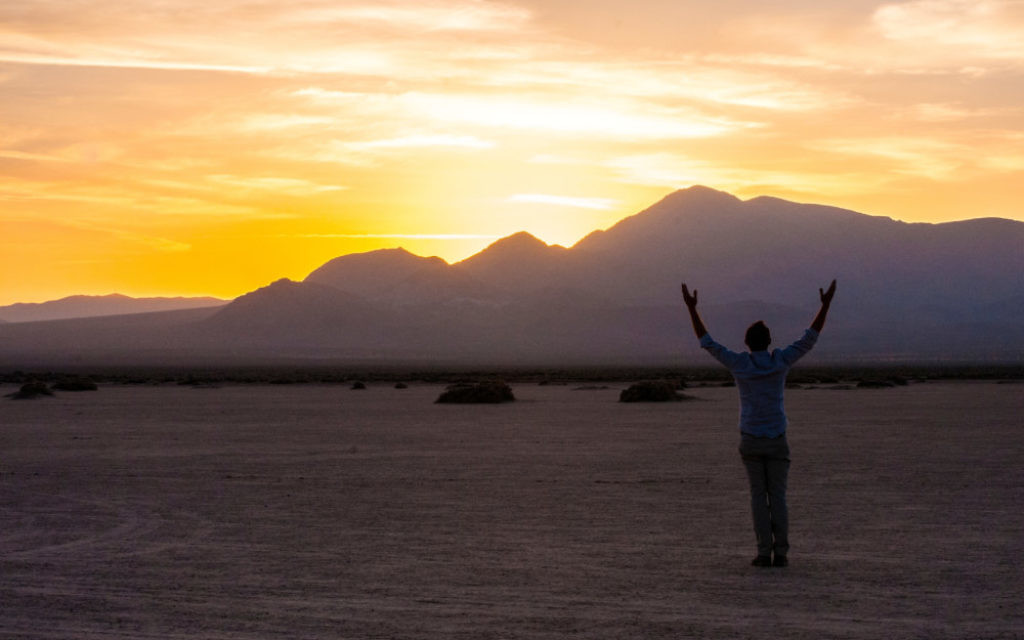AJFF: ‘Wrestling Jerusalem’ Matches Pain, Justice
Aaron Davidman searches for answers about the Holy Land in “Wrestling Jerusalem,” being shown Feb. 7 and 8.
You won’t see a better or, after recent U.N. and U.S. actions, more timely movie than “Wrestling Jerusalem” at this year’s Atlanta Jewish Film Festival, but that doesn’t mean you’ll like it.
The film is a 90-minute showcase for actor and playwright Aaron Davidman, who brings his one-man show about the Israeli-Palestinian conflict to the big screen. Davidman vividly portrays 17 characters, Jewish and Arab, to demonstrate that nothing is simple when claims to the Holy Land are personalized.
Get The AJT Newsletter by email and never miss our top stories Free Sign Up
Davidman sets the tone from the start when, cutting from a dressing room to a desert to a stage and back again, he races through a series of possible explanations for why peace remains a distant dream. “You might say” it goes back to 1967 or 1948 or 1947 or 1929 or the entire British Mandate or any of several massacres.
In those opening moments, you know Davidman isn’t taking sides but is sharing his anguish that Jews and Arabs can’t get along in part because they can’t stop looking back.
The start also establishes that director Dylan Kussman does much more than film his star on a stage. Kussman shoots Davidman amid the tortured beauty of the land and emphasizes the dramatic differences of opinion with jarring jumps between locales while maintaining the continuity of the monologue.
Davidman includes some jokes and funny moments, but the two most memorable scenes are angry, sad and raw.
In one, Davidman re-creates a visit to an Arab village, where he has one of the best meals in his life but also watches as an armored Israeli military vehicle rolls through town and is confronted by angry youths. He is warned to step away from a window, just in case shooting starts.
In the other, he depicts an argument with an American Jewish medical student who volunteers in a hospital in Hebron and marches with Palestinian protesters every week. It starts with “Hamas is the lesser of two evils” vs. “Hamas is a gang of fascist zealots” and escalates from there. It’s a brilliantly shot scene using a mirror to make a statement about who’s on the other side.
But if you can’t approach the conflict with an open mind or at least sympathy for both sides, you’ll probably want to grapple with a different film.





comments